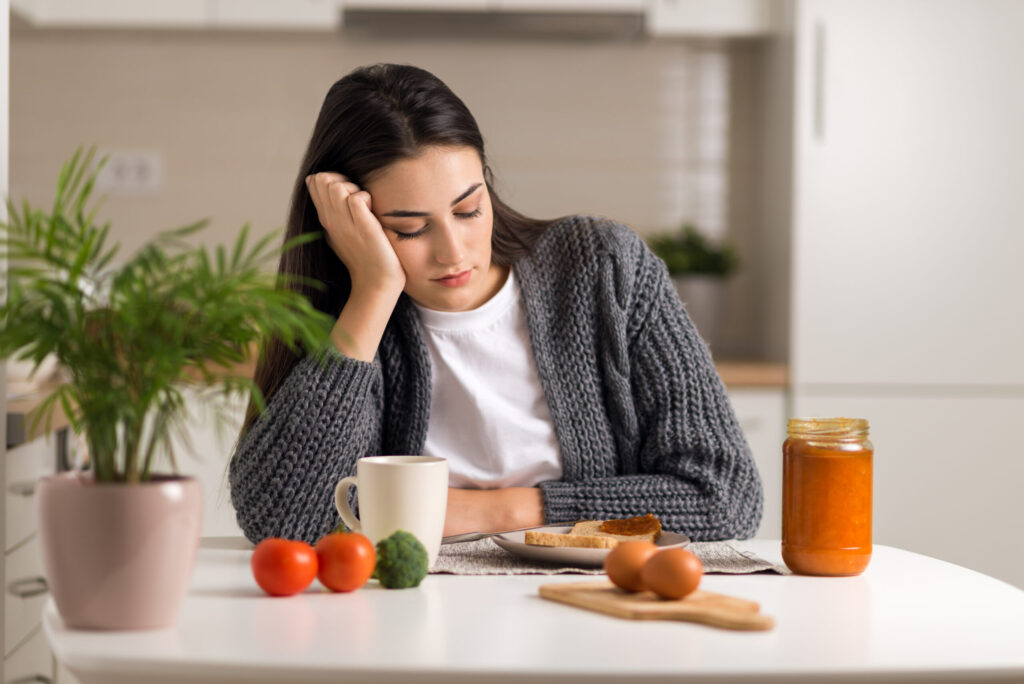If you’ve been feeling a bit off lately, there’s a good chance that you’re not eating well. And when your diet isn’t working well, your appetite definitely won’t be following suit. If you’re having trouble getting the food down, don’t despair – there are plenty of foods you can eat to help jumpstart your appetite. This post will show you five foods to eat when you don’t have an appetite. So don’t let your appetite go missing – read on for tips on how to eat when you don’t want to! Check our Nutrition-Assisted Therapy and group talk therapy whether you need professional help to overcome your mental issues.
What causes no appetite to eat?
There are several possible causes for no appetite to eat, ranging from medical to psychological issues. Here are some of the most common:
-Physiological causes – When digestive systems aren’t operating properly, people may have little or no appetite. Stomach bugs, food poisoning, or poor gut health can cause this.
-Psychological causes – Depression, and anxiety can lead to feelings of apathy and cravings that go unimpeded. In extreme cases, this can result in anorexia nervosa (an eating disorder characterized by excessive weight loss), binge eating disorder (a chronic pattern of feeding in which the person overeats food even if it’s not healthy), or bulimia nervosa (a condition characterized by recurrent binges and purging).
-Medical conditions – Some medical conditions cause reduced appetites directly. These include gastroesophageal reflux disease (GERD), gallstones, cancer treatments that suppress the appetite such as radiation therapy and chemotherapy, Parkinson’s Disease Treatment with L-dopa leads to decreased hunger pangs because dopamine levels drop after treatment ends, diabetes mellitus type 2, celiac disease (gluten intolerance), or fibromyalgia (joint pain).
If you experience any difficulty eating regular meals or gaining weight, talk to your doctor about what might be causing it. Specialists can diagnose the problem and recommend the appropriate treatment.
What vitamins boost appetite?
Some supplements can help to boost appetite. Zinc, vitamin B1 (thiamin), and fish oil are all-natural substances that have been shown to boost food intake. Zinc is especially notable because it has been linked with increased energy and appetite. Additionally, research has found that zinc can help block receptors in the brain that stimulate hunger signals.
Vitamin B1 is important for converting protein into glucose, which fuels your body’s muscle tissue and helps you burn calories. Fish oil contains high omega-3 fatty acids, which have been shown to promote weight loss by helping you reduce fat storage and Increase satiety (the feeling that you’ve had enough). Taken together, these supplements help improve your ability to eat more sensibly without overeating or feeling hungry later.
How to eat when you have no appetite?
Eating when you don’t have an appetite can be difficult, but finding a way to get through the day is important. There are a few strategies on how to eat with no appetite that can help make this process easier.
– Start with small portions and gradually increase your intake over time. This will allow your body to become accustomed to eating again, and you’ll eventually feel more vital hunger cues.
– Eat slowly and savor every bite of food. Taking your time will also help you taste all the flavors and nutrients in the dish, encouraging you to eat more overall (and stomachache free!).
– Avoid sugary drinks and snacks, as these will only add further difficulty at mealtime. Choose healthy options like soup or salad instead of cake or cookies.
– Drink plenty of fluids throughout the day. This will help replace lost fluids and electrolytes, which could lead to feeling more hungry later.
Whatever approach works for you will likely be the most effective. Just keep trying different things until you find something that makes eating enjoyable again.
What to eat when you’re not hungry but need to eat?
When you don’t have an appetite, it can be hard to decide what to eat. You may feel like anything will make you feel better, but that’s not always true. Some foods are bad for you when you’re not feeling well. Here are a few suggestions for dishes that can help fill your stomach and keep your energy levels up:
-A bowl of soup or chili is a great way to warm up and increase your caloric intake without adding tons of unhealthy fats.
-Chicken noodle soup is a classic comfort food that tastes delicious and is packed with vitamins, protein, and other nutrients.
-Any pasta will do the trick – rigatoni in tomato sauce, macaroni and cheese, etc. Pasta isn’t just ideal because it’s filling; it also has plenty of protein (which helps reduce hunger cravings).
-If cereal isn’t your thing, try oatmeal instead – both versions are high in fiber which will help digestion and satisfy hunger cravings more slowly throughout the day.
– Try protein drinks such as shakes or smoothies made with soy, almond, or hemp milk. These will help fuel your body and give you the energy you need to get through the day.
Should I force myself to eat if I have no appetite?
It’s an everyday struggle to have no appetite, even when trying to stick to a healthy diet. However, there are some things that you can do to make eating easier. First, try drinking chamomile tea before meals or snacks. This soothing herb has been shown to help increase hunger and stimulate the appetites of people who don’t usually feel hungry.
Besides, avoid caffeine after 4 pm, as it will interfere with your body’s natural sleepy signals and cause you to eat more food later in the evening. And finally, take breaks throughout the day instead of focusing entirely on eating one large meal at dinner time. A small snack here and there will keep your energy levels up so that you aren’t as tempted by unhealthy foods later in the night.
